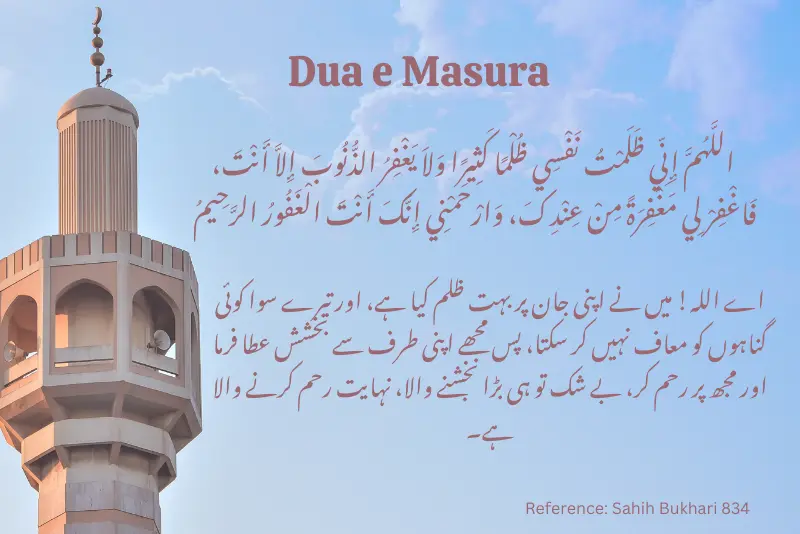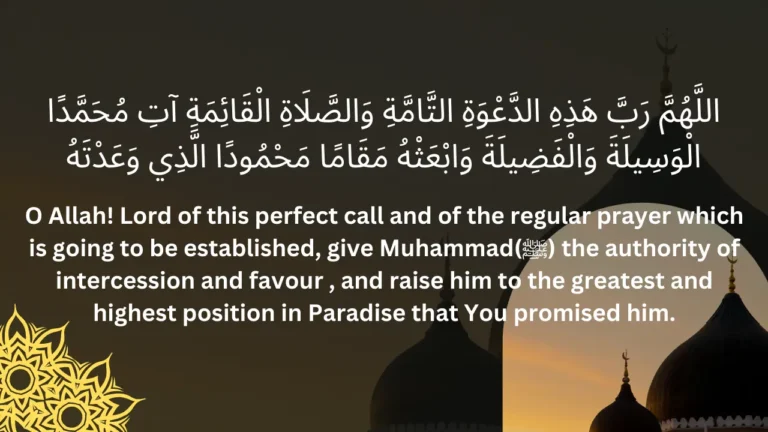Dua e Masura in Arabic
Narrated by Hazrat Abu Bakar Siddiqرضي الله عنه:
I asked Allah’s Apostle to teach me an invocation so that I may invoke Allah with it in my prayer. He told me to say,
اللَّهُمَّ إِنِّي ظَلَمْتُ نَفْسِي ظُلْمًا كَثِيرًا وَلاَ يَغْفِرُ الذُّنُوبَ إِلاَّ أَنْتَ، فَاغْفِرْ لِي مَغْفِرَةً مِنْ عِنْدِكَ، وَارْحَمْنِي إِنَّكَ أَنْتَ الْغَفُورُ الرَّحِيمُ
Allahumma inni zalamtu nafsi zulman kathiran, wa la yaghfiruz-zunuba illa anta, faghfir li maghfiratan min indika, warhamni, innaka antal-Ghafurur-Rahim.
Reference: Sahih Bukhari 834
Dua e Masura in English
The English translation of Dua e Masura conveys its meaning and significance for those who may not understand Arabic.
”O Allah! I have done great injustice to myself, and none forgives sins except You. So grant me forgiveness from You and have mercy on me. Indeed, You are the Most Forgiving, the Most Merciful”.

Dua e Masura in Urdu
Here is Dua e Masura in Urdu, making it accessible for Urdu-speaking Muslims.
اے اللہ! میں نے اپنی جان پر بہت ظلم کیا ہے، اور تیرے سوا کوئی گناہوں کو معاف نہیں کر سکتا، پس مجھے اپنی طرف سے بخشش عطا فرما اور مجھ پر رحم کر، بے شک تو ہی بڑا بخشنے والا، نہایت رحم کرنے والا ہے۔

Why is This Called Dua e Masura
The term Dua e Masura refers to a specific supplication that has been transmitted and established through authentic sources.
The word “Masura” (مأثورة) means “narrated” or “transmitted” in Arabic, indicating that this dua has been authentically reported in Hadith collections.
Dua e Masura Benefits
Reciting Dua e Masura has numerous benefits, including:
When to Read Dua e Masura
Dua e Masura is commonly recited in the prayer. It can also be recited at other times as a means of seeking Allah’s help and mercy.






